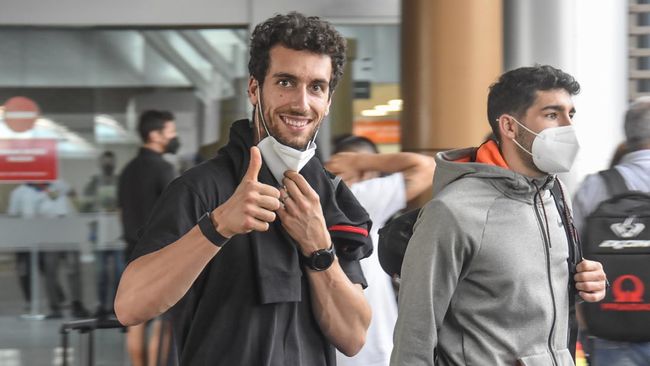This Tuesday, March 22, the first trials of a vaccine against covid-19 that is applied in the nose will begin. It is a treatment developed by the Beijing Wantai Biological Pharmacy Enterprise, which seeks to test its doses in at least 3,000 people in Colombia. The analysis of these results could take up to 20 months, said the research centers that will be in charge of the studies in the country.
The trials will include people over 18 years of age and under 90, who have received their last anti-covid vaccine at least six months ago or who have not been vaccinated.
In Colombia, five research centers –located in Bogotá, Medellín, Envigado, Ibagué and Barranquilla– will carry out the studies. For example, at the Bluecare research center, which is located in Bogotá, they will be evaluating the vaccine in at least 500 people between now and May 6. Then, a follow-up process will begin that could last up to 20 months.
Lina María Cortés, bacteriologist and coordinator of clinical trials at Bluecare, assured that these studies correspond to the third and final phase.
This is how the study will work
Before starting the process, the people who are going to participate in the study are asked to read and sign an informed consent, a document in which they confirm their willingness to participate in the research. Later, they take several laboratory samples to determine, for example, if they have HIV, if they are pregnant or if they are infected with coronavirus.
After verifying that all these tests were negative, patients go to a second appointment in which they apply the intranasal vaccine. The dose of the spray is 0.1 milliliters and is applied once in each nostril.
After administering the vaccine, the patient must remain accompanied by the vaccinators for 30 minutes in order to verify if there is any adverse reaction. In addition, they are given a thermometer, a vaccination card and a diary to record any reaction or symptom.
“It is known that it is a very safe vaccine, since phase II studies have already been carried out, in which it was proven that the drug has high levels of safety,” explained Cortés.
As with the anticovid vaccines that are already being applied today, there are some minor side effects that have already been identified. Other symptoms include nasal congestion, headache and sore throat.
If the patient does not show any adverse events, the clinical trial continues with a second dose of the vaccine, which is applied after 14 days.
The advantages
Claudia Vaca, director of the Medicines, Information and Power think tank at the National University, assured that in order to face the coronavirus pandemic it is essential to combine all forms of struggle, for which she celebrated the fact that new technologies are being tested with this finish.
Vaca warned that in terms of vaccines there are two challenges at the global level. On the one hand, to ensure that the refrigeration conditions are not too rigid, which facilitates some logistical conditions such as transport and shipping, for example, to scattered rural areas. One of the vaccines that has this advantage is that of Janssen, whose schedule only requires one dose, which can be stored at temperatures from 2 to 8 degrees Celsius.
–
The other challenge is to facilitate its route of administration, which is a clear advantage in oral or intransal vaccines, since they do not necessarily have to be applied by personnel with technical or scientific training. “Nor do they require specialized devices or biosafety measures that do involve other routes of administration,” Vaca pointed out.
In addition, he pointed out that in recent years research on intranasal vaccines has been reinforced because respiratory viruses enter through the nasopharyngeal mucosa. “One of the first responses of the immune system is precisely in that mucosa, in this particular case at the level of the upper respiratory tract there may be a signal of a rapid response in the production of immunoglobulins,” Vaca said, referring to the antibodies found in some of the body fluids. “Therefore, this form of intranasal administration ends up being extremely interesting. The Cubans have already begun to investigate this (see Background)”, noted the expert.
–
In addition, contrary to the current ones, they would not only protect the vaccinated person from having a serious illness or dying from covid, but would also influence the fact that, in the event of infection, not enough viral particles are released by the host to infect others.
Vaca concluded that they could be complementary to the vaccines that are already being applied today, especially since the majority of the population has already been vaccinated.
In fact, according to Cortés, the results of the trials are expected to show that the vaccine is at least 60% effective in protecting against the virus. And although the patients will be followed up for one year and eight months, it is expected that there will be results at six months that will allow a Sanitary Authorization for Emergency Use (Asue) to be processed, which is the one with the five anticovid vaccines that today they are being applied at the national level
–


